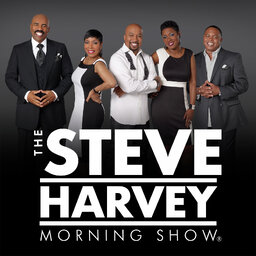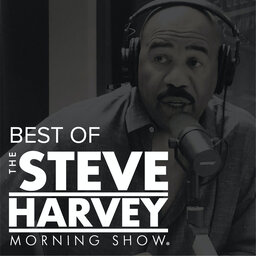Info You Can Use: Breaking down the value of Term, Whole and Universal Life Insurance policies to gain Financial Freedom!
Two-time Emmy and Three-time NAACP Image Award-winning television Executive Producer Rushion McDonald interviewed Brianna Johnson.
Lgnd Life Financial is a mission-driven financial services company dedicated to empowering individuals, families, and small businesses through comprehensive financial literacy and life insurance education. Founded by Brianna Johnson, a visionary leader and top life insurance agent, Lgnd Life has redefined the industry by providing tailored solutions that protect and build wealth for its clients.
With a track record of serving over 5,000 families and paying out millions in claims, Lgnd Life Financial stands as a trusted partner in securing financial futures. Licensed in over 25 states, the company also invests in the next generation of professionals by training and mentoring more than 250 life insurance agents, fostering a community of excellence and empowerment.
At Lgnd Life, the mission goes beyond policies—it's about creating legacies.
She is a visionary entrepreneur, financial expert, and the founder of Lgnd Life Financial, a company dedicated to empowering individuals and families to build wealth and secure their financial futures. Born and raised in Chicago, Brianna began her entrepreneurial journey at just 14, owning two successful clothing stores and hair salons by the age of 22. At 24, she boldly transitioned into the financial services industry, combining her passion for helping others with her knack for business innovation.
Through Lgnd Life Financial, Brianna has served over 5,000 families and paid out millions in claims, ensuring financial stability for her clients. Licensed in over 25 states, she has also mentored and trained more than 250 life insurance agents, fostering growth and success in the financial sector. Brianna is committed to breaking barriers, particularly for women and minorities, and inspiring others to create lasting legacies for their families and communities.
#BEST
#STRAW
#SHMS
In 3 playlist(s)
Money Making Conversations Master Class
Hi, this is Rushion McDonald. Welcome to the podcast world of Money Making Conversations Master Clas…Social links
Follow podcast
Recent clips
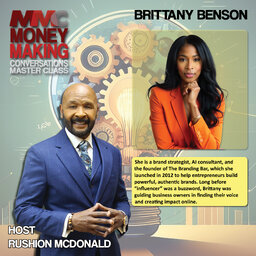
Brand Building: She creates AI Clones that can produce content without the owner being physically present.
31:32
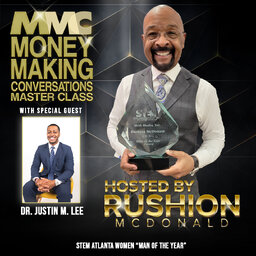
Money Tips: He issues a call to action to explore opportunities like Amazon DSP, construction and real estate investment.
22:43
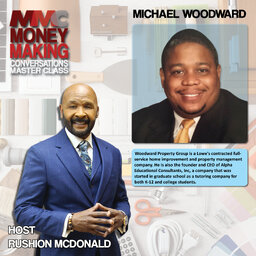
Uplift: He was raised in poverty, now a real estate tycoon, top Lowe's contract and community leader.
29:27
 Money Making Conversations Master Class
Money Making Conversations Master Class
